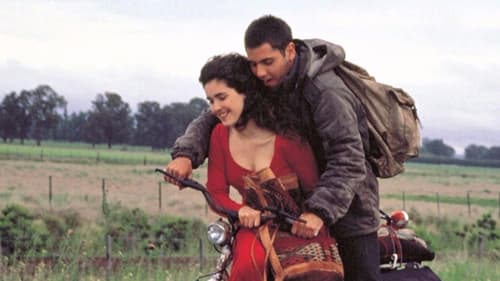
Editor
A young man living in a cold southern village in South America, decides to start a trip looking for his father. By doing this he discovers unexpected facts about his Latin American essence.

Sound
Documentary filmed over a period of four months, from 25 December 1975 to 5 March 1976, in the area of the former Spanish Sahara claimed by the people who lived there, the Saharawis, a people now mobilised and in arms (the Polisario Front) against Morocco and Mauritania, two states that have signed an agreement to share the territory.

Director
Documentary about the military coup in Chile.

Editor
A wealthy French promoter based in Rio tries to seduce Alexandra, a young woman of high society, but trapped in her strict education.

Editor
"Director Yolande du Luart had been involved in Lettrist circles in France before decamping for California to study film at UCLA, where her classmates included Charles Burnett and Haile Gerima. During this time, UCLA professor Angela Davis was a subject of increasing scrutiny after coming out as a Communist, provoking the ire of administrators and governor Ronald Reagan. Believing that Davis would be an ideal film subject, du Luart immediately began making a documentary, though she would ultimately return to France to complete the project after receiving unwanted attention from the FBI. “Over the course of events,” writes Nicole Brenez, “this appreciative and sensitive portrait of a politically engaged philosopher had been transformed into a call for the liberation of an imprisoned activist and an internationalist revolutionary manifesto.”" - Film at Lincoln Center
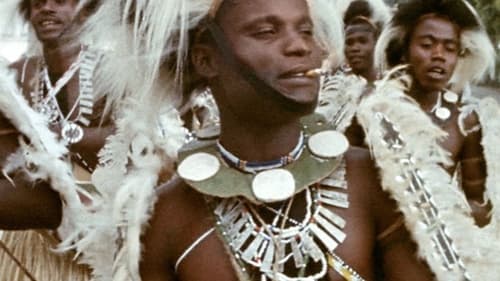
Assistant Director
Festival panafricain d'Alger is a documentary by William Klein of the music and dance festival held 40 years ago in the streets and in venues all across Algiers. Klein follows the preparations, the rehearsals, the concerts… He blends images of interviews made to writers and advocates of the freedom movements with stock images, thus allowing him to touch on such matters as colonialism, neocolonialism, colonial exploitation, the struggles and battles of the revolutionary movements for Independence.

Editor
Festival panafricain d'Alger is a documentary by William Klein of the music and dance festival held 40 years ago in the streets and in venues all across Algiers. Klein follows the preparations, the rehearsals, the concerts… He blends images of interviews made to writers and advocates of the freedom movements with stock images, thus allowing him to touch on such matters as colonialism, neocolonialism, colonial exploitation, the struggles and battles of the revolutionary movements for Independence.

Editor
Race driver who has lost his membership card becomes the chauffeur of a gangsters pack

Editor
Two adventurers and best friends, Roland and Manu, are the victims of a practical joke that costs Manu his pilot's license. With seeming contrition, the jokesters tell Roland and Manu about a crashed plane lying on the ocean floor off the coast of Congo stuffed with riches. The adventurers set off to find the loot.

Editor
After twenty-seven long months spent in Algeria, Frédéric Simon, a young photographer is determined to forget this time of trouble. Now that the Army has finally discharged him he wants to live the good life. And at first, things go according to his wishes: not only does he marry Sylvie but they are invited by a wealthy man to Monte Carlo, where they spend a dream honeymoon. But back in Paris, hard times await them. Not finding work easily along with having to live in a cramped apartment make Frédéric bitter and unpleasant. When Sylvie becomes pregnant, he slams the door and finds consolation in the arms of Christine, an ex girlfriend, which he soon regrets. At last, the situation improves. Frédéric finds work and starts making money as a fashion photographer. But the good life cannot go on: one morning a policeman knocks at the young couple's door: the country wants Frédéric back in the Army.
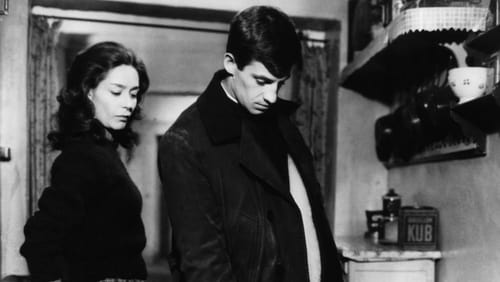
Editor
Situado durante a França ocupada, uma mulher sem fé se apaixona por um jovem padre. Na Segunda Guerra Mundial, a viúva Barny vê os soldados italianos chegando em São Bernardo ocupada enquanto caminhava para seu trabalho. Barny mora com a filha e trabalha corrigindo testes e sente uma grande atração em relação ao seu chefe, Sabine. Quando os alemães chegam, Barny envia sua filha meio judia para morar numa fazenda no interior e descobre que o irmão de Sabine foi preso e enviado para um campo de concentração. O ateu Barny decide batizar sua filha para protegê-la e escolhe o padre Léon Morin para discutir com ele temas relacionados à religião e ao catolicismo e Léon empresta livros a ela. Barny se converte ao catolicismo e se aproxima de Léon, sentindo um desejo não correspondido por ele. (e 14 - Estimado 14 Anos)
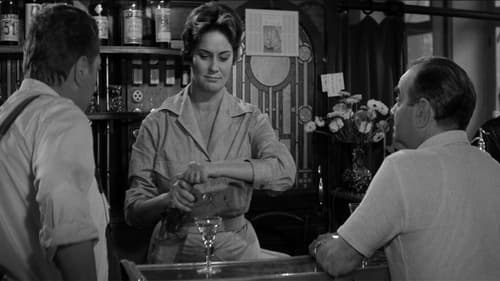
Editor
Uma dona de um café de aldeia julga reconhecer num vagabundo, o seu marido deportado durante a II Guerra Mundial, mas o homem que perdeu a sua memória não se lembra de acontecimentos anteriores a 1945, com os quais se vê confrontado. Remete-nos para uma visão reveladora do amor, como último contraforte da humanidade. A visão do rosto interior de alguém toca pela essência dois seres cujas existências podem e devem ver-se transformadas e expandidas numa revolução intima libertadora. A ausência traumática aponta-nos a alienação social que o amor teima em ganhar. (e 12 - Estimado 12 Anos)
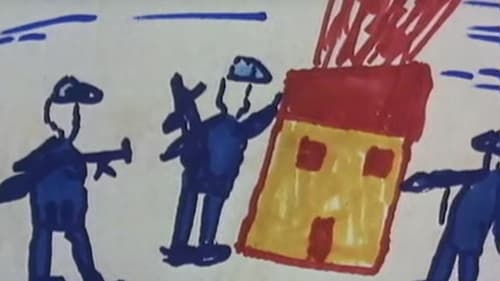
Editor
Algerian children, survivors of the war and refugeeing in Tunisian camps, recount the tragic events they have experienced, from drawings they have made themselves.









